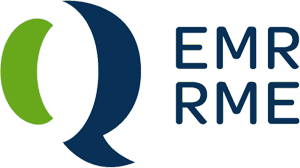Urinary incontinence in women: solutions and rehabilitation in Lausanne
A common but often overlooked inconvenience
Urinary incontinence in women is much more common than you might think. It affects around one in three women of all ages. It manifests itself as involuntary loss of urine, either with effort or without warning. Leakage can be occasional or regular, sometimes mild, sometimes disabling.
However, this disorder is often ignored. Many women don't dare talk about it, out of embarrassment or fear of being judged. Some think it's "normal" after childbirth, or that with age, you just have to put up with it. This is not true. Living with bladder weakness is not inevitable. Today, effective solutions exist.
Among them, perineal re-education is the most recommended. It enables in-depth action to be taken on the causes, without the need for medication or surgery. In Lausanne, it is offered at the Centre Philae, in a professional and caring environment.
(source : PMC7494011)
Why do these leaks appear?
Urinary incontinence in women can have several causes. The most common is weakening of the pelvic floor muscles. These muscles support the bladder, uterus and rectum. When they are less tonic, they retain urine less well, especially under stress (coughing, sport, carrying a load, etc.).
Pregnancy, childbirth and menopause are common triggers. Other factors may come into play: overweight, pelvic surgery, chronic constipation or repeated coughing. Sometimes, the bladder itself becomes overactive. This is known as urge incontinence.
In many cases, the mechanisms combine. It is therefore essential to identify the exact nature of the symptoms in order to implement the right treatment.
(source: NIH - Incontinence)
.

The impact on daily life
Urinary incontinence has a major impact on quality of life. It limits social activities, sports and travel. Some women avoid going out or laughing spontaneously, for fear of an accident. This withdrawal gradually affects self-confidence.
Intimate life is also often disrupted. Fear of leakage during intercourse can dampen desire or create discomfort. Although invisible, this disorder generates permanent stress. It is not uncommon for patients to live with this problem for years, without daring to talk about it to a professional.
And yet, the earlier the treatment, the better the results. That's why it's so important to break the taboo. And dare to seek help.
(source: PMC6683741)
Perineal rehabilitation: a first-line approach
In the treatment of urinary incontinence in women, perineal rehabilitation is the recommended first choice. It is non-invasive, personalized and effective in the majority of cases. It helps strengthen the muscles responsible for bladder control.
The therapist guides you through the appropriate exercises. This may include targeted contractions (Kegel exercises), biofeedback, gentle electrostimulation, or advice on posture and everyday gestures. The aim is to give you back better control of your perineum.
This approach is equally suited to young mothers and menopausal women. It's gentle, accessible and has no side effects. It helps you regain comfort, autonomy and confidence.
(source: Cochrane Review - PFMT)
What studies show
Scientific data confirm the effectiveness of perineal re-education. A meta-analysis by the Cochrane Library shows that women who undergo this type of treatment are up to 8 times more likely to be completely relieved of their leaks, compared with those who do nothing.
Rehabilitation significantly reduces stress incontinence, but also acts on mixed or urgency incontinence. It also improves overall quality of life, comfort in daily activities, sexuality and body confidence.
These results are long-lasting, provided you do the exercises regularly over a period of several weeks. Professional guidance greatly increases the chances of success.
(source: PMC6628618)
Where to consult in Lausanne
At the Centre Philae in Lausanne, rehabilitation is provided by experienced physiotherapists trained in urogynecological disorders:
Solen is appreciated for her gentleness and empathy. Attentive and present, she adjusts each session to your needs and progress. Complete, she remains available for patients who have already been treated and for recommendations (doctors, midwives, patients...).
Clara offers a warm, committed presence. Always on the lookout for ways to improve, she doesn't hesitate to network with other therapists and supports you every step of the way.
Amélie, dynamic and attentive, accompanies each patient with precision. Committed, she finds solutions and encourages you throughout your sessions.
Géraldine welcomes you with calm, a smile and kindness. Her calm, respectful presence provides a reassuring environment, conducive to serene care.
Each program begins with a personalized assessment. Sessions then combine targeted exercises, manual techniques, postural advice and sometimes tools such as biofeedback or electrostimulation. You are guided every step of the way, in a discreet and reassuring environment.
Don't wait for symptoms to set in. Early treatment significantly improves quality of life. You deserve to feel free, serene... and confident in your body.





